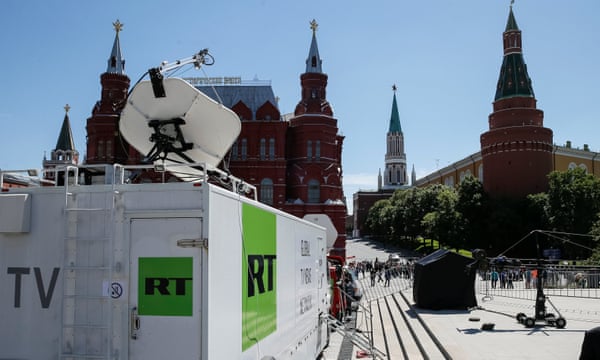"Informed AI News" is an publications aggregation platform, ensuring you only gain the most valuable information, to eliminate information asymmetry and break through the limits of information cocoons. Find out more >>
Meta Bans Russian State Media Globally Amid Foreign Interference Allegations
- summary
- score

Meta, owner of Facebook, Instagram, WhatsApp, and Threads, has banned Russian state media outlets RT, Rossiya Segodnya, and related entities globally. The ban stems from allegations of foreign interference and deceptive tactics in influence operations. Enforcement will roll out in the coming days.
The US has also taken action, filing money-laundering charges against two RT employees for allegedly hiring a US company to produce content aimed at influencing the 2024 election. US Secretary of State Antony Blinken announced new sanctions against RT, describing it as a "de facto arm of Russia’s intelligence apparatus."
Blinken accused RT of funding weapons and equipment for Russian soldiers in Ukraine, including sniper rifles and drones, some sourced from China. He detailed RT's targeting of countries in Europe, Africa, and the Americas, particularly Moldova, where Russia aims to incite protests if the election doesn't favor a Russia-preferred candidate.
Key Terms:
- RT: Formerly Russia Today, a Russian state-funded news network.
- Rossiya Segodnya: A Russian state-owned international news agency.
- Hybrid war: A military strategy that blends conventional warfare, cyberwarfare, and psychological operations.
Insights: The ban and sanctions reflect a growing global concern over state-sponsored disinformation and its impact on democratic processes. Meta's move underscores the tech industry's role in combating foreign interference, while the US actions highlight the broader geopolitical implications of media manipulation.
| Scores | Value | Explanation |
|---|---|---|
| Objectivity | 4 | Balances viewpoints but slightly leans towards Meta's actions. |
| Social Impact | 5 | Significantly influences public opinion on state-sponsored disinformation. |
| Credibility | 5 | Solid evidence from authoritative sources. |
| Potential | 6 | Almost inevitably leads to significant changes in media regulation. |
| Practicality | 4 | Highly practical in combating foreign interference. |
| Entertainment Value | 2 | Slightly monotonous but includes some relevant elements. |